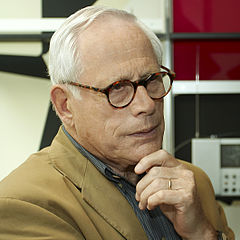by Tony Chiu | Photo Credits: Tony Chiu ; Model: Hieu | 11 November 2013
Something interrupted my peaceful drink the other night. And till now, I’m still very bothered by it.
My friend and I were enjoying some lovely beverages and, as usual, we chatted about our dreadful professors who gave us loads of work, and whined about how some girl we met the other day didn’t seem to be interested in us.
But today was different. Today, somebody texted my friend.
A distinctive ringtone thundered across the lounge through a gazillion watt speakerphone, and silenced everybody. They started to stare at him as he stood up, twisted his arse, put a hand in his pocket, and jiggled back and forth. Eventually, after a full Morris dance, he managed to whip out what appeared to be an over-sized faux leather case.
He began staring at his phone and stayed still for minutes. Bad news, I thought. Somebody has rejected him, again.
But no, he was just using face recognition to unlock his new Samsung Galaxy S4.
So why am I so bothered by this? Well, you see, I get extremely frustrated about people’s constant urge to quantify the good and bad in everything, while taking no interest at all in what really matters. The experience of a product.
Samsungers forever tell us about all the great functions in their phones. You get an enormous screen and a detachable battery. You get to swipe type, and wave your hand to change pages, and pause a video by looking away from the screen. You get expandable memory. You get to share your photos by bumping phones together. And you even get to use your phone as a credit card.
Yes, in every single measurable way Galaxies are better than iPhones.
But what’s the point of counting up all those functions? What’s the point of measuring the size of your screen if you can’t even take it out of your pocket?
|
Demo of activating face recognition: 1. Place phone directly in front of your face 2. Adjust angle and distance of phone with respect to your face 3. Hold facial expression 4. Wait patiently 5. If it does not respond after a minute, simply use your passcode to unlock |
|
Dieter Rams A German Industrial Designer Founder of Vits? Former Chief Design Officer at Braun One of the modern faces of functionalism in product designs. |
|
Dieter Rams’ 10 Principles: |
You see, with an iPhone 5S, what you get is an aluminium, sapphire and glass structure sculpted using crystalline diamonds. You have the hardware and software designed by Sir Jony Ive, who is highly influenced by Dieter Rams — the godfather of industrial design — and his 10 principles of good design: You get a user-friendly, understandable interface as you unlock the phone seamlessly with Touch ID by simply resting your finger on a button. You get a feel of unobtrusive elegant proportions as you hold this cold piece of metal in your palm. Most importantly, as an option, you get an honest genuine factory leather case.
You can’t quantify the philosophy behind a design or the care that’s put into building a product. A simple game of Top Trumps wouldn’t do. These are things that you’ll only understand once you use it.
Analogous to drinks, a Samsung device is like vodka. It’s packed with punch, and all possible ingredients you can imagine. You get more bang for the buck, but nothing feels quite the way you want it to.
An Apple device is like wine. It’s packed with a rich history of sophisticated processes and refinements. It’s carefully crafted by people who understand tastes and care about your experience.
At the end of the day, you spend just as much, and get just as drunk. But the difference between them is simply galaxies apart.
In a hundred years’ time, people will look back into the innovations of the 21st century. When they talk about Samsung, they’d compare it with the likes of HTC, Blackberry and Sony. But when they talk about Apple products, they’d put them next to the Airbus A380, the Bugatti Veyron and the Burj Khalifa.
Yes, Samsung makes good phones. But Apple makes good things.
That’s what separates good from great.
The opinion and views in this article are that of the author and do not reflect the opinion or views of the HKU Journal of Technology, or the TecHKU Editorial Team. You can comment below to let the author know what you think.
To submit an opinion piece of your own, send an email to techkueditors@gmail.com or use the contribute button on the top right of this site.




